The terror group espouses a hateful ideology but operates like a business
ADF STAFF | PHOTOS BY REUTERS
Farmers, herdsmen and shop owners in al-Shabaab-controlled areas of Somalia have grown to dread the knock on their doors. Typically coming around the Islamic holiday of Eid al-Fitr, the knock means a visit from heavily armed, aggressive “tax collectors.” The collectors tell the businessman it is his religious duty to pay zakat, a type of alms intended to help the poor. If he dares to tell the gunmen that they have no religious authority to collect the tax, he risks death. Either way, the money will not be used to help the poor; instead it will finance terrorism.
“If we tell them we have already paid our zakat directly to those who deserve it, they will not accept that,” said Isaac Osman of the town of Buurhakaba in 2012. “Instead, they impose on us steep penalties and take from us double the amount at gunpoint.”
In 2011, when al-Shabaab was at its strongest, the group held sway over nearly half of Somalia and used the territory as a virtual cash machine. The group collected $70 million to $100 million annually through a wide variety of enterprises, the United Nations reported.
Today it controls roughly 10 percent of the country, and its ability to extract revenue is limited. But the group is still dangerous, relying on a small cadre of hardened fighters and requiring only cheap explosives to inflict damage. Even the deadly attack on the Westgate Shopping Mall in Nairobi cost only $100,000 to organize and execute.
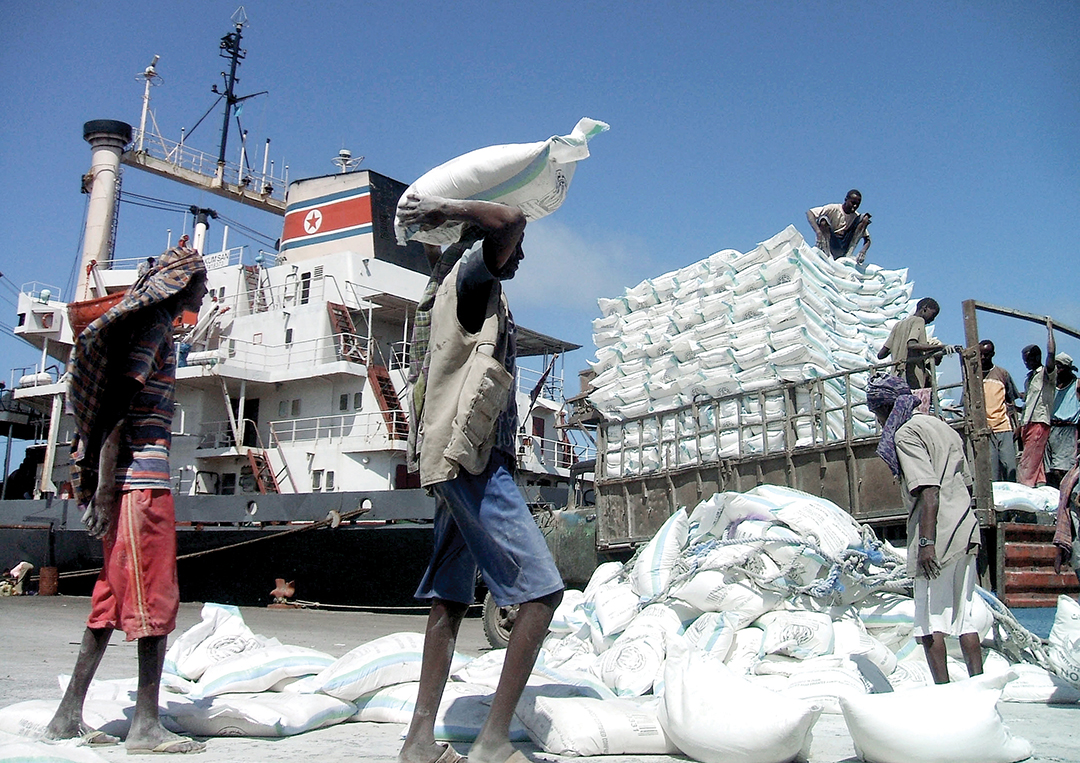
“The territory they control has shrunk, so their operational costs are reduced,” Tom Keatinge, director of the Centre for Financial Crime & Security Studies at the Royal United Services Institute, told ADF. “And, I think things like that get to a dangerous point where they realize they can’t just operate in the expansive way they were operating previously, and so their model starts to evolve from proto-state to dangerous insurgent group.”
The terror group uses four methods to generate income: taxation and extortion, trade and contraband, diaspora support known as hawala, and other external support, according to a study by Keatinge. The Somali government and African Union forces are working to restrict the group’s access to revenue by taking back territory and blocking access to ports where it can export goods. The international community is doing its part by making illicit financial flows more difficult, arresting top donors and enforcing a ban on illicit exports.
Still, the group has proven to be resilient. Al-Shabaab stunned local residents in October 2016 by swiftly taking back control of three Somali towns after the departure of Ethiopian troops. Later in the month they detonated a car bomb at an African Union base in the town of Beledweyne.
“It’s guerrilla fighting on the cheap, and they’re quite efficient at using the means that they have, and that means the insurgency can go on for years,” said Stig Hansen, a fellow at Harvard University’s Belfer Center and the author of the book Al-Shabaab in Somalia. “The key is to establish security for the villages in the countryside where they get taxes. Until that is done, Shabaab can stay alive.”
Taxing and Extortion
It is typical for terror groups to live off the land and demand money from citizens in occupied areas. Al-Shabaab went a step further and institutionalized the process. The group created a Ministry of Finance known as the Maktabatu Maaliya and recorded extensive information about the economic activity going on in territory it controlled. The ministry was typically headed by a Somali with advanced education or someone who had spent time abroad. One notable head was Ibrahim Afghani, who controlled the ministry until he fell out of favor and was later killed in 2013.
Through the ministry, al-Shabaab instituted a sales tax on commercial transactions, a land tax on farmers and aggressively collected the 2.5 percent zakat. In some places shop owners were forced to pay a “protection fee” to avoid having their goods stolen. In Bakara Market in Mogadishu, for example, vendors had to pay a transport tax to move goods in or out and paid $50 to $250 per month for protection.
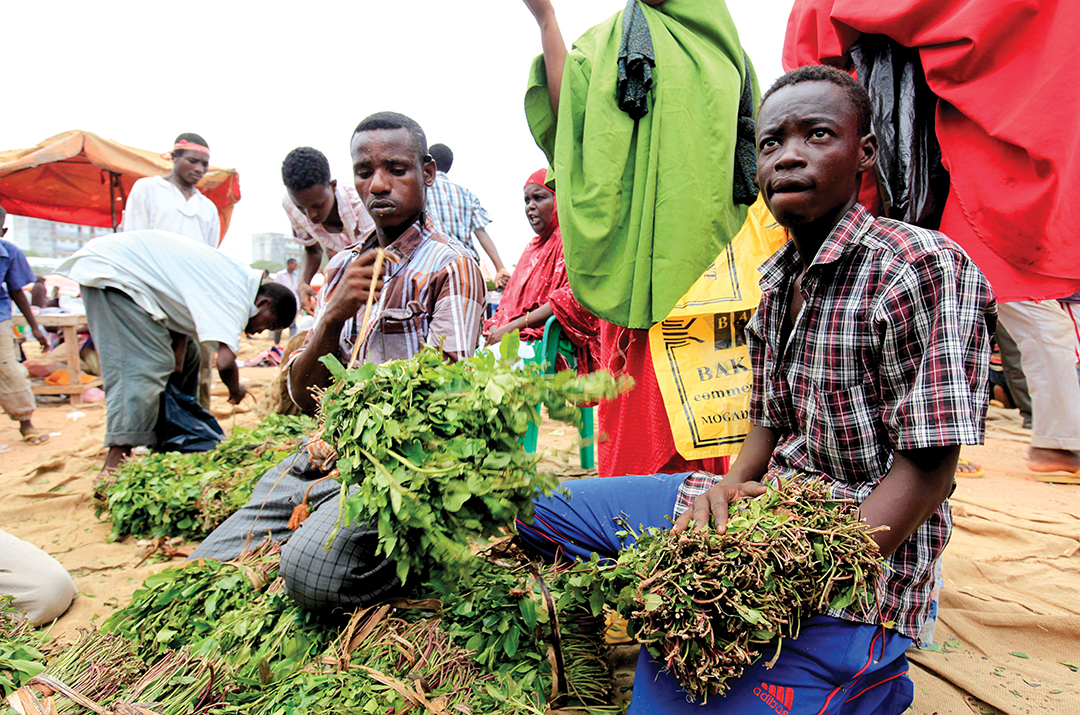
“If al-Shabaab did one thing well it was rigorously collect taxes and scrape every dollar from the Somali economy,” the online news site Somalia Report said. “It is clear that al-Shabaab was far more diligent and successful collecting taxes than the [Somali government] ever was.”
In the port town of Kismayo, the group taxed goods entering and leaving the port. Boats paid $2,000, and dhows paid $1,000 to dock there.
The key to blocking this revenue source for al-Shabaab is taking back territory and offering consistent security after the territory is liberated. African Union Mission in Somalia (AMISOM) forces retook the Bakara Market in 2011 and the port of Kismayo in 2012.
Still, the taxing continues. After losing control of the port, al-Shabaab maintained checkpoints on the road leading from Kismayo north to a town called Jibil. Through this they continue to tax trucks going into or out of the port. Similarly, they have been opportunistic at setting up checkpoints in areas nominally under government control and harassing villagers to pay protection fees.
“They cannot face AMISOM in open combat, but they can actually put up a checkpoint and have quite a good time until AMISOM arrives,” Hansen said.
Hansen said until AMISOM and the Somali National Army have a consistent presence in all areas of the country, villagers and businesspeople will be forced to pay taxes to al-Shabaab out of fear for their lives. “The people in the village know there will be AMISOM Soldiers here one or two days a week, but when they leave Shabaab will come back, so it’s good to pay the Shabaab money in order to survive,” he said.
Hawala
An estimated 14 percent of Somalis live outside Somalia, and the country relies heavily on remittances from the diaspora in Europe and North America to function. A study by the United Nations’ Food and Agriculture Organization found that Somalis living abroad send home at least $1.2 billion per year. That figure is about one-fifth of the country’s gross domestic product. These sums are mostly sent back through an informal network known as hawala. The network operates on a trust-based system in which users pay an agent locally and another agent transfers that money to the recipient in Somalia in exchange for a fee.
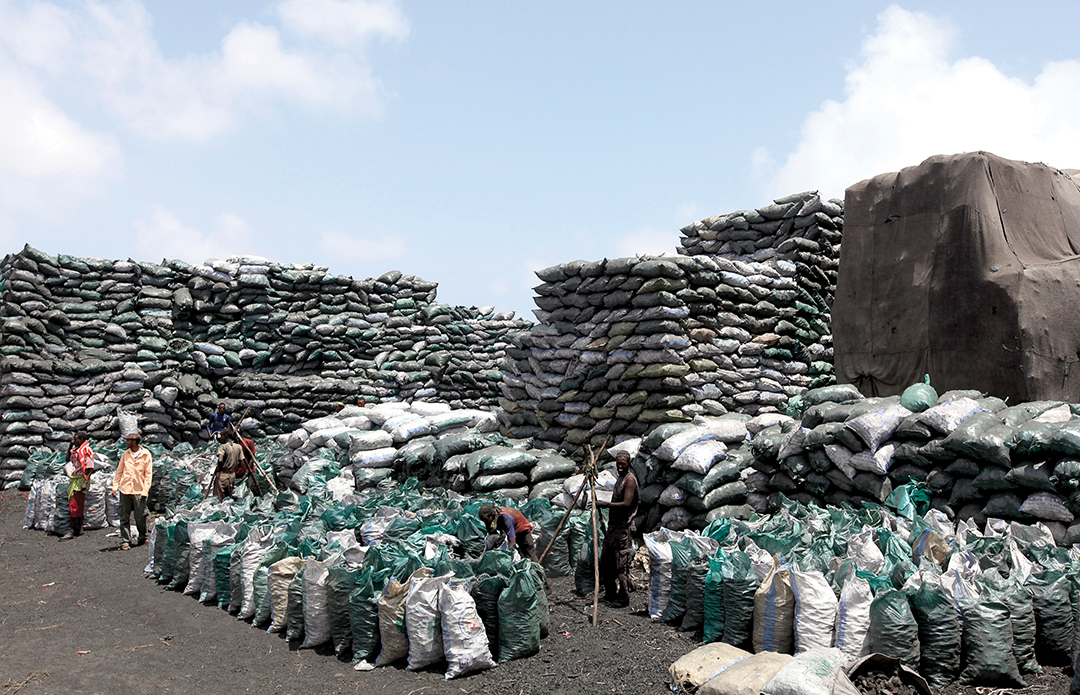
This is largely a positive way for Somalis living abroad to assist family members at home with badly needed money. Throughout the worst period of Somalia’s 20-plus years of civil war, the hawala system continued to function.
After the United States designated al-Shabaab a foreign terrorist organization in 2008, the U.S. began prosecuting people who sent money to the group. Hawala networks were scrutinized, and some banks closed accounts linked to the system. Some Somalis complained that they were wrongly accused of sending money to terrorists.
Today it has become more difficult for al-Shabaab to obtain money directly through hawala, but the group has found other ways. The group has been known to use individual couriers to personally smuggle money in and out of the country. If they hold less than $10,000, they are exempt from reporting it on international flights. Additionally, there is nothing to stop the group from imposing taxes on hawala networks and agents operating in areas of the country it controls.
“People can send money to their families with all good intentions, but if it gets extorted from their families when they pick it up from the remittance agent, then there’s not much you can do about that,” Keatinge said.
Deep Pockets
Al-Shabaab formally aligned with al-Qaida in 2012 and has received support through the network of terror financiers since that time. Terror groups promote a concept called tajheez al-ghazi from wealthy individuals who are sympathetic to their cause. According to Keatinge, this is a form of sponsorship that “allows those who cannot, or will not, join the jihad physically for whatever reason, to achieve the honor and heavenly reward of waging jihad by proxy.” Osama bin Laden championed this network of rich donors, calling it the “Golden Chain.” One Qatari businessman, Umayr Al-Nuaymi, is alleged to have funneled $250,000 to the group, according to the U.S. Treasury Department.
In October 2016, two women were convicted in U.S. federal court of being part of the “Group of Fifteen,” international donors who raised money online to support al-Shabaab.
But wealthy donors are no longer opening their pocketbooks to al-Shabaab in large numbers; instead they favor other terror organizations such as ISIS. “Fundamentally, the jihadi money is more likely going to Syria at this point,” Keatinge said. “There’s a sort of competition for jihadi dollars, and I’m not sure al-Shabaab is going to be a top pick.”
Trafficking
Somalia is among the driest countries in the world, and what little tree cover exists is precious. Yet, for years al-Shabaab has profited by chopping down the country’s acacia trees, burning the wood to make charcoal, and exporting it to Gulf states, where it is prized and sells for $8 to $11 per sack. The U.N. estimated in 2012 that al-Shabaab earned $25 million per year from the charcoal trade.
The group exported the charcoal from Kismayo as part of a lucrative system for charging a production tax, transport tax and various checkpoint fees, earning money at each step along the production cycle. At the time Kismayo was liberated, al-Shabaab had amassed 4 million sacks of charcoal worth about $60 million.
“The charcoal trade for al-Shabaab is like the poppy trade for the Taliban,” the news site UN Dispatch reported in 2012. “It is the single most important source of income.”
The group profits from numerous trafficking ventures including vehicles, sugar and the narcotic leaf khat. Sugar typically is imported from the Gulf states and then smuggled across the border for sale in Kenya.
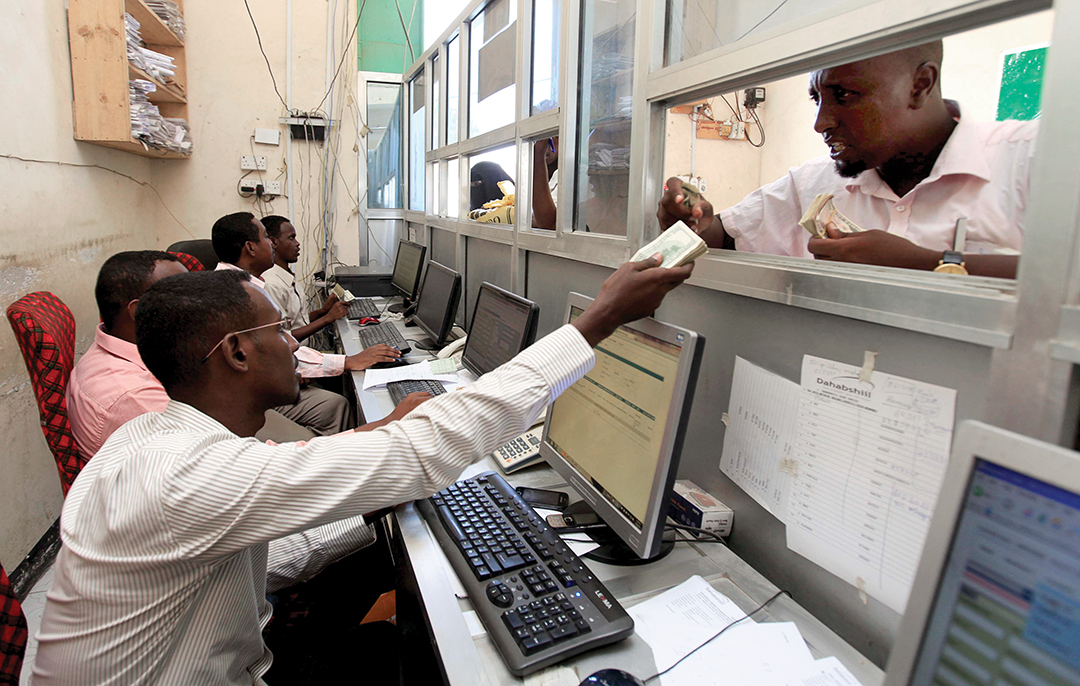
As AMISOM and the Somali National Army have made it more difficult to operate trafficking networks domestically and restricted al-Shabaab’s access to ports, experts say it is imperative to put pressure on Gulf states to decrease the demand for these goods. The U.N. imposed a ban on all member countries importing charcoal originating from Somalia. The ban failed to stop the trade, and the U.N. Security Council passed a resolution allowing naval vessels in the waters off Somalia to inspect all ships suspected of carrying charcoal.
Al-Shabaab “still controls a number of arterial roads where khat and charcoal are transported. So while they might not actually be cashing in at the port, they are cashing in inland,” Keatinge said. “The question is to what extent is that trade still going? To what extent is the UAE [United Arab Emirates] clamping down on it?”
As Somalia fights to turn the page on more than two decades of civil war and the brutal insurgency, the government and its burgeoning security forces are doing their part. In February 2016, the country passed an anti-terror financing law aimed at strengthening and cleaning up the country’s financial sector. In September 2016, Somalia enacted a measure that will ensure that troops are paid on time, a key way to reduce corruption that aids al-Shabaab.
“Al-Shabaab has been denied its overseas supplies and free movement of foreign fighters who used to provide the group with training and know-how for the construction of explosive devices,” President Hassan Sheikh Mohamud told Newsweek. “Equally importantly, al-Shabaab has lost the ideological battle. Their continuous indiscriminate killing has exposed their oblique and twisted un-Islamic behavior. The general population who was kept under their threats and extortion has not only distanced itself from them, but now feels free from fear.”

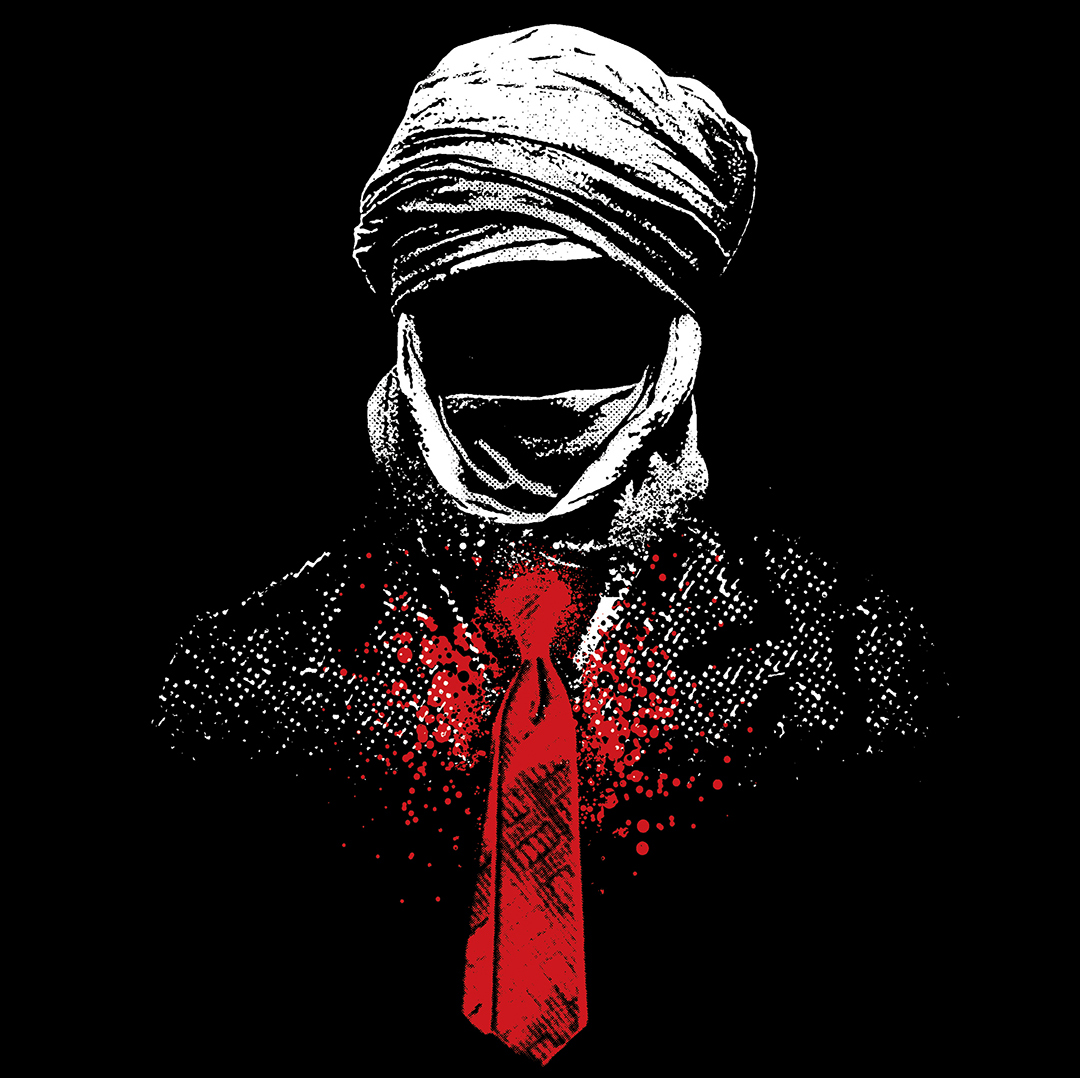
Comments are closed.